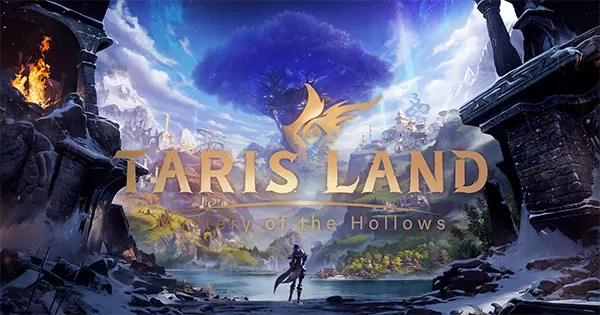Assassin’s Creed: Jade is shaping up to be one of the most anticipated mobile games of 2025. Developed by Ubisoft in collaboration with Level Infinite (a Tencent subsidiary), this action RPG promises to bring the franchise’s iconic parkour, stealth, and open-world exploration to smartphones. But can it truly redefine what mobile gaming means and lead the RPG segment into a new era? Let’s take a closer look.
The Core Gameplay Mechanics and Setting
Set in Ancient China during the time of the Qin dynasty, Assassin’s Creed: Jade explores a rarely visited chapter in the franchise’s history. Players take on the role of an original assassin, with full character customisation — a first for the series. The game is designed as an open-world experience with cities, villages, wilderness, and imperial fortresses available for seamless exploration.
Core mechanics familiar to fans — such as silent assassinations, free-running, and synchronisation points — are all present, but adapted to touchscreen devices. Combat relies on directional swipes, parries, and quick reactions, aiming to translate traditional console controls into intuitive mobile gestures.
Ubisoft has also promised deep RPG systems, with equipment upgrades, skill trees, and quest chains, making it more than a shallow spin-off. Players are expected to invest time in levelling up, managing gear, and choosing strategic upgrades for their assassin’s unique playstyle.
Performance, Graphics, and Mobile Optimisation
Assassin’s Creed: Jade uses Unreal Engine 4, enabling console-quality visuals tailored for high-end smartphones. Environments feature dynamic lighting, realistic textures, and densely populated areas that mirror the aesthetic of Assassin’s Creed Odyssey and Origins. It’s one of the most technically ambitious mobile RPGs in development.
However, to ensure broader accessibility, Ubisoft is also working on graphical scalability. The game will reportedly run smoothly on both flagship and mid-range devices, with adjustable graphic settings. Early gameplay tests in closed beta have shown stable performance across a range of Android and iOS hardware.
Battery consumption and device heat remain concerns for resource-heavy games. Ubisoft aims to address this by integrating adaptive frame rates and performance modes, allowing players to prioritise visual fidelity or battery longevity depending on their context of play.
Monetisation and Live Service Model
Unlike previous mobile entries like Assassin’s Creed: Identity, Jade will launch as a free-to-play title with optional in-app purchases. While the full monetisation model hasn’t been revealed yet, it’s expected to include cosmetic items, battle passes, and possibly gacha-like systems for weapons and gear.
This decision places Jade in direct competition with heavyweights like Genshin Impact, Diablo Immortal, and Tower of Fantasy — all of which use the same approach. The key difference lies in how fair and optional these systems will be, especially for players who prefer not to spend money.
Ubisoft’s challenge is to avoid pay-to-win criticism and build trust with a mobile-first audience. Regular content updates — including new quests, gear, and story arcs — are planned as part of its live service strategy, potentially ensuring long-term engagement if managed responsibly.
Community Response and Closed Beta Feedback
The limited beta tests conducted in early and mid-2025 have yielded mostly positive feedback. Testers praised the depth of the combat system, the fidelity of the visuals, and the authenticity of the Chinese historical setting. However, some pointed out concerns with touch responsiveness and over-complex UI elements.
Ubisoft has been active in collecting and responding to feedback, with several interface refinements and movement improvements already confirmed for the next phase of testing. This open channel of communication could be key in turning Assassin’s Creed: Jade into a polished and responsive product upon release.
Community engagement is further reinforced by Ubisoft’s decision to open a creator programme and allow influencers to preview development content. This marketing strategy positions Jade not only as a game but as an ecosystem aimed at fostering long-term user interaction and visibility.

The 2025 Market Outlook for Mobile RPGs
In the first half of 2025, mobile RPGs have continued to dominate revenue charts globally, particularly in Asia and North America. Franchises like Honkai: Star Rail and Blue Archive have set the benchmark for production quality, story depth, and monetisation success.
For Ubisoft, Assassin’s Creed: Jade is not just a new mobile title — it’s a strategic move into one of the most competitive genres in gaming. With mobile representing over 50% of global gaming revenue in Q2 2025, success here is critical to the publisher’s future growth beyond traditional consoles and PC.
To truly stand out, Jade must offer something new: whether it’s narrative richness, historical immersion, or unique gameplay loops. Its connection to the Assassin’s Creed legacy may draw initial attention, but sustained success will rely on live service execution, monetisation fairness, and community satisfaction.
Will Assassin’s Creed: Jade Define the Genre?
As it stands, Assassin’s Creed: Jade holds immense potential to redefine expectations for AAA mobile RPGs. By merging the depth of the franchise with mobile-optimised design, it could bridge the gap between casual gaming and hardcore RPG mechanics on phones.
Ubisoft’s proven expertise in world-building and historical storytelling gives Jade an edge — especially with its rarely explored setting in Chinese antiquity. The game also signals a growing trend: major publishers no longer view mobile as a side project, but as a core pillar of their strategy.
Whether Assassin’s Creed: Jade becomes the genre-defining success of 2025 will ultimately depend on execution. But if the studio delivers on its promises, this could be the title that brings mobile RPGs firmly into the mainstream spotlight.







